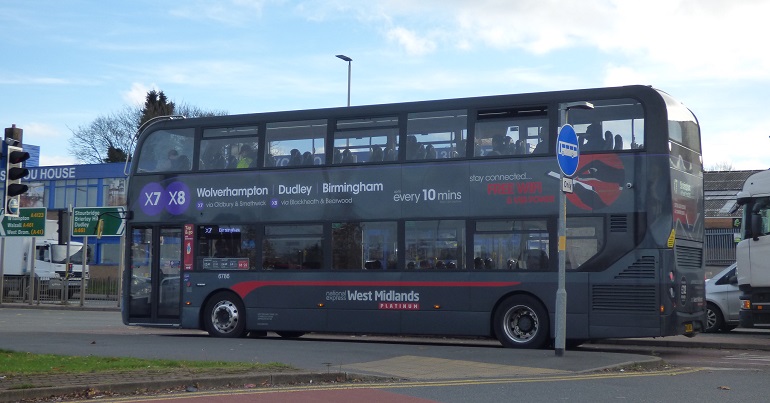Why the Green Party is calling for free bus travel for everyone

The Times’s Matt Chorley wrote his Red Box column for today before reports started to came out from Green Party conference – including the new plan for free bus travel and significantly boosted bus services in England – but he succeeded in demonstrating beautifully how Greens are right at the leading edge of politics.
Chorley’s topic was buses, and how even the Tories have started to talk about them as a serious issue. (Not, of course, to do very much about them, but they are clearly finding impossible to ignore the anger and frustration around the country about the collapse in services and their high cost, with bus travel becoming 65% more expensive in the past decade.)
The Red Box writer noted how Jeremy Corbyn raised buses at Prime Minister’s Questions last year. And Labour has promised free travel for the under 25s.
But this is an issue the Green Party has been focused on for much longer. Back in 2015 I was announcing that our manifesto would call for a 10% cut in bus fares and last spring co-leader Jonathan Bartley was calling for “revolution”, with buses serving every community. (That that should have to be considered “revolutionary is telling in itself.)
Now we’re going far further – to free travel for all, because England – and the world – needs urgent action on a transport system that meets the needs of our communities, and our planet, of which buses are a crucial element..
Bus travel is crucial to tackling the Climate Emergency. The Intergovernmental Panel on Climate Change has told us we have only a decade to turn around our societies. With around one-third of our society’s emissions from transport, we need a “modal shift” to use the experts’ jargon – a move away from private cars to active transport, walking and cycling, and public transport.
But it is no good suggesting that people move away from private car travel, with all of its carbon emissions, air pollution impacts and congestion contribution, if there isn’t a practical, affordable alternative.
Free buses are certainly one part of that. A powerful recent letter to the Sheffield Telegraph noted how grandparents had decided to take their grandchildren into town on the weekend – on the bus as the special treat, since it was so much more expensive than taking the car.
But cost is only one issue. The other is far more services, serving more communities more often, which we’re making provision for through an additional £10 billion in funding for local authorities, as the organisations by far the best placed to understand where and when services are needed.
Those who’ve grown up in or become used to a society that has privileged the rights of cars might find this modal shift surprising, but it is worth taking a little history lesson on how recent this all is.
Longtime residents of Sheffield speak often and nostalgically about the time back in the Seventies, in what was then known as the People’s Republic of South Yorkshire, when bus fares were 2 pence for children and 5 pence for adults. I’ve lost count of the number of times I’ve been told “there was no traffic then.”
The plan was for buses to eventually become free. The public benefit was clear. Then along came Margaret Thatcher, who thought anyone over the age of 25 catching a bus “a failure”, and the push was on to get people into cars.
That’s been accompanied by further drastic social changes, particularly in recent years, with poverty, inequality and the rise of loneliness – coming together to make a social crisis every bit as pressing as our environmental one.
As I wrote last year, “everyone should be able to move around their community, to meet friends and family, to get into nature, to get to work”. But the practical reality is that cost and lack of bus services mean that isn’t the case.
And making this change might be a lot less difficult than ministers can see, from their ministerial cars.
For social changes are also very much lining up to support bus travel. If you are driving, you can’t – or at least you certainly shouldn’t be, posting on Instagram or updating your Facebook status. Anthropologists have long been talking about peak car, with young people learning to drive later in life, or not at all.
Spending hours stuck in your car, unable to usefully do anything else, stressed, alone, will one day be looked back at as an astonishing way to spend time. That this should be accompanied by the wasteful emissions of massive quantities of pollutants will cause our descendants to wonder just why anyone thought this was the way to design a transport system.
Header image credit: Elliott Brown, Creative Commons




The way we transport ourselves around the country is well out of date. We should be looking at other forms of transport coming from or Universities. With the corona viris and what we have learnt from it trains and buses do not fit the purpose. We all should have electronic pods with clean air that takes us to a loading point onto a pod transporter around the country to a destination. Across London should be a better system based on a grid system.
Your views would be appreciated
Michael Still